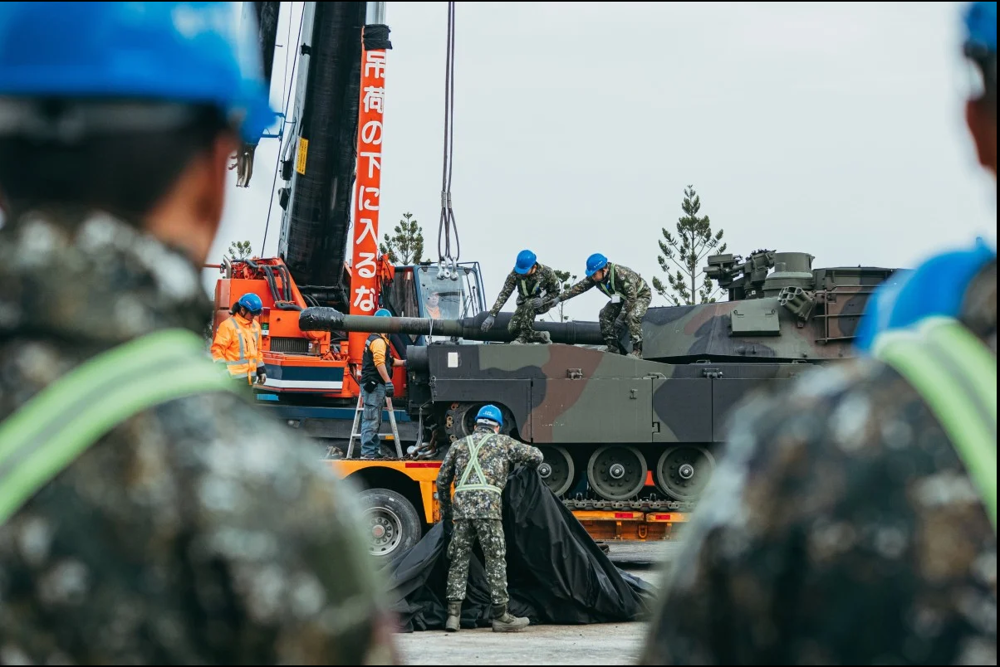China may build nuclear power plants in disputed waters: Report
China may build mobile nuclear power plants in the South China Sea, in what could be an act of defiance by Beijing against a ruling that challenged its claims to sovereignty in the disputed waters.
“Marine nuclear power platform construction will be used to support China's effective control in the South China Sea,” the China National Nuclear Corporation (CNNC) said on a social media account, the state-run Global Times reported.
The report said the platforms, which will be constructed on the islands and reefs of the South China Sea’s Nansha chain, are meant “to ensure freshwater.” The Nansha chain is called Spratly Islands by Beijing’s rivals.
“In the past, the freshwater provision to troops stationed in the South China Sea could not be guaranteed, and could only be provided by boats delivering barrels of water,” the Global Times cited the report as saying.
The CNNC further emphasized Beijing’s resolve to step up the development of the South China, which has long been the subject of a territorial row between China and a number of its neighbors.
“In the future, as the South China Sea electricity and power system is strengthened,” the report added.
On Friday, Chinese website The Paper quoted China Shipbuilding Industry Corporation (CSIC) engineer Zhu Hanchao as saying that 20 marine nuclear platforms were under construction.
But Zhu, however, said the platforms would be deployed to oilfields in the Bohai Sea off China’s northeast coast, not in the South China Sea.
Chinese officials have not made any comment on the media reports so far.
The report came after the Permanent Court of Arbitration in The Hague ruled that China’s claims over most of the South China Sea had no legal basis in a case brought by the Philippines.
The court also rejected China’s argument that it enjoys historic rights over most of the resource-rich sea also accused Beijing of violating Manila’s economic and sovereign rights.

However, Beijing, which had already boycotted the ruling, quickly rejected the panel’s verdict and said it “does not accept and does not recognize” the arbitration on the dispute.
It also vowed a “decisive response” to any provocations in the South China Sea, warning the United States and its regional allies against attempts to turn the strategic waters into a “cradle of war.”
Following the Tuesday ruling, two Chinese civilian aircraft landed at two new airports on reefs controlled by China in the South China Sea.
Chinese Vice Foreign Minister Liu Zhenmin said Beijing could declare an air defense identification zone over the waters if it felt threatened.
Besides China, all countries surrounding the sea, namely Vietnam, Malaysia, the Philippines, tiny Brunei and Taiwan – lay claim to some part of it.
Washington, which has sided with China’s rivals, Washington, claims the waters are international and regularly sends warships there on so-called “freedom of navigation” missions.
China has repeatedly said it will never compromise on its sovereignty over the waters, with President Xi Jinping warning that his country was not “afraid of trouble.”
Occupation of Syria’s highest peak Mount Hermon part of ‘Greater Israel’ project
Iran: Syrian people will decide their future without foreign interference
IRGC says Iran’s power exceeds borders, warns enemies to adjust themselves
Dozens detained, several wounded in Israeli raids in West Bank
‘Ethnic cleansing’: Hamas blasts Israeli attacks on Gaza hospital amid intl. silence
Saudi delegation meets HTS leader at presidential palace in Damascus
Relentless Israeli ceasefire violations justify need for self-defense: Lebanese MP
Tel Aviv tells Damascus Israeli forces will remain in occupied territory: Report















 This makes it easy to access the Press TV website
This makes it easy to access the Press TV website